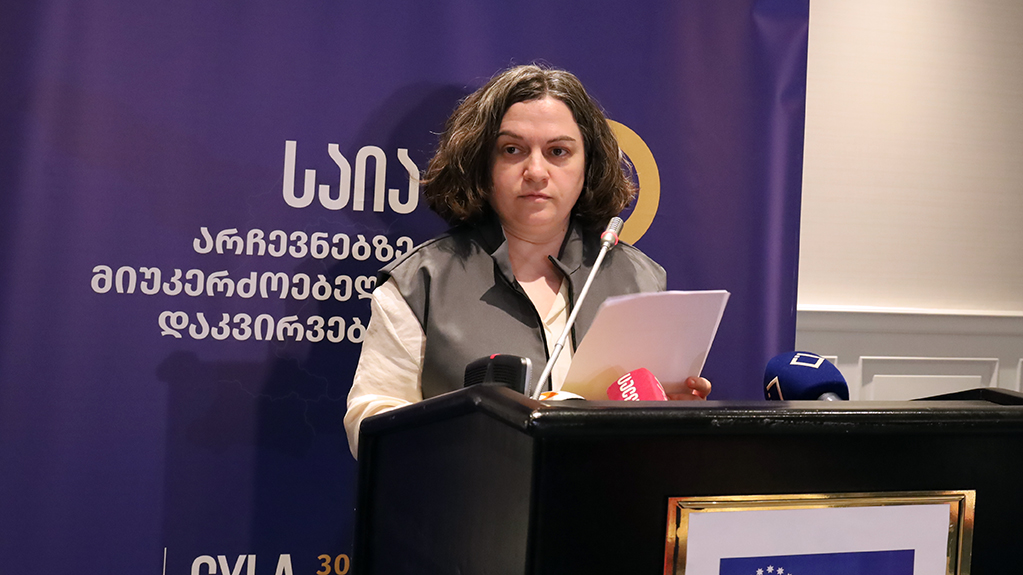Due to violations of voting secrecy, the Association of Young Lawyers of Georgia is requesting the annulment of results from all 2,263 precincts where technology was used. According to the organization’s chair, Nona Kurdovanidze, relevant complaints have been submitted to district election commissions.
News
As per the Georgian Young Lawyers' Association (GYLA), the principle of voter secrecy was massively violated on election day, breaching the electoral rights guaranteed by the Constitution of Georgia.
“Voting secrecy is a fundamental component of the constitutional right to vote, and when violated, the protection of this right becomes merely symbolic. This guarantee also encompasses aspects of the election process at polling stations, such as the tools used to exercise this right - the ballot and the ballot box.
Based on the standard established by the OSCE Office for Democratic Institutions and Human Rights, absolute voting secrecy must be maintained at every stage of the voting process, including the moment when the ballot is cast.
Violation of the principle of secrecy also contravenes the European Convention, which states, ‘The High Contracting Parties undertake, at reasonable intervals, to hold free elections by secret ballot under conditions that ensure the free expression of the people’s will in electing their legislative body.’
The European Court's practice highlights that this article differs from other fundamental rights in the Convention and its Additional Protocols in that it mandates High Contracting Parties to hold elections that genuinely reflect the people’s free will.
Notably, the Venice Commission, when advising on electronic voting technology, specifically emphasized the need for Georgia’s election administration to ensure voting secrecy.
Nevertheless, the Central Election Commission (CEC) failed to protect this right during the 2024 parliamentary elections. Specifically,
The ruling party, Georgian Dream, installed video cameras at polling stations. In some cases, these cameras were directed toward the registrar’s desks and verification machines, and in others, toward the voting booths and the main ballot box. Additionally, the quality of the ballots allowed a colored circle mark to remain on the back. These two factors combined present high risks of influencing voter decisions and compromise the principles of voting secrecy and free expression,” said Nona Kurdovanidze.
Kurdovanidze noted that GYLA identified these risks during CEC-organized educational and informational meetings held before the election and requested that the CEC take measures to address them. In a letter dated September 28, 2024, the CEC informed GYLA that the ballots used in the training and information sessions were test versions and that those used on election day would be of different quality to ensure confidentiality. According to Kurdovanidze, this commitment was not fulfilled.
If the complaints submitted by GYLA are upheld, it could lead to re-elections, as the invalidation of results from technologically managed precincts would significantly affect the election outcome.
Given the scope and systematic nature of the voting secrecy violations, GYLA has also petitioned the prosecutor’s office to initiate an investigation into these incidents, Kurdovanidze added.















